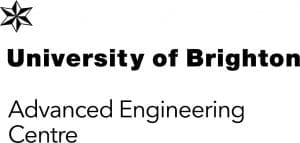Background about Marco
Meet Dr Marco Bernagozzi, an Italian researcher who came to Brighton in 2015 through the Erasmus internship programme to pursue a Master’s degree. Little did he know that his journey would take him to the heights of research success.
Marco’s research journey started when he was offered a position as a Research Officer for an Innovate UK project with Tata Motors. He continued to work as a Research Officer on various projects, including those with the European Space Agency, Highview Power, and Dearman. Finally, after almost 3 years in academia and a couple of publications, Marco decided that he was ready to take up a new challenge. In January 2019, he began his PhD, co-sponsored by Ricardo, on the Thermal Management of Electric Vehicles (EVs).
What led to this research?
The research culminated in a prestigious award for the Best Oral Presentation at the 21st International Heat Pipe Conference and 15th International Heat Pipe Symposium in Melbourne, Australia. The award was the result of extensive research that took place in summer 2022, using a recently purchased environmental chamber.
The research was aimed at addressing the challenges of thermal management in electric vehicles, which is a critical issue given the potential for overheating in electric vehicles. The main aim was to evaluate the behaviour of a new Battery Thermal Management System (BTMS) in different ambient conditions.
The uniqueness of the proposed BTMS is that Loop Heat Pipes (LHPs) work without pumps, moving parts or any other additional energy source, which makes them very appealing to increase the limited vehicle range (a main reason why customers are reluctant to buy EVs).

Schematic of (a) flat plate Loop Heat Pipe (LHP) and (b) the proposed BTMS. LHPs at the bottom of the battery pack, acting as thermal vector removing heat from the modules and directing towards the HVAC chiller (Credits: Elsevier).
LHPs also activate at low temperatures, and remove heat, which although this is normally a desirable feature, in this case it will delay the heating process (Li-Ion batteries are most “happy” between 25 and 40°C).
Hence, the main questions that Marco and colleagues at the Advanced Engineering Centre wanted to answer were:
- does the system work at high temperatures?
- does the LHP provide a negative delaying effect during heating from low temperatures? And if so, by how much?
Results showed that the system works at all tested conditions (from -20°C to 50°C), advocating for the operational flexibility of the two-phase technology.

Figure 3. This graph shows the effect of the LHP during cooling phases. We can see the average cell temperature with the presence of the LHP (“yes”) and without the LHP (“no”). We can see how the ∆T increments with the increase of the ambient temperature.

Figure 4: Effect of the LHP presence on the heating and cooling processes, and in this graph only the ∆T is presented, for clarity purposes. The ∆T value for the heating is represented with a negative sign to signify it is not a positive outcome.
The graphs above show the core results of the investigation, portraying the temperature difference given by the LHP compared to a battery module withouEVst LHPs: we see that LHPs introduce a small negative effect (represented for clarity purposes with a negative sign), which is a temperature reduction during heating. However, it is clearly outweighed by the benefit provided during the cooling phases.
Hopefully these results help the conversation with automotive manufacturers, answering their doubts and scepticism around two-phase devices and in particular Loop Heat Pipes, possibly going towards the direction of implementing a prototype of this BTMS design in a vehicle.
 The trip to Melbourne was not just about the conference, as Marco had the opportunity to explore the city and see some of Australia’s unique wildlife, including kangaroos, koalas, and penguins.
The trip to Melbourne was not just about the conference, as Marco had the opportunity to explore the city and see some of Australia’s unique wildlife, including kangaroos, koalas, and penguins.
The highlight of the trip, however, was the award for Best Oral Presentation at the conference, a testament to the hard work and dedication that Marco put into his research. The award recognizes the significant contribution that his research makes to the field of thermal management in electric vehicles, and it also highlights the quality of research being carried out by young researchers like Marco at the Advanced Engineering Centre.
Marco and the team at the AEC are now interested in continuing the research topic in two directions:
- refinement of the numerical model by replicating the environmental chamber results, and hence extend the data set by simulating more cells and evaporator;
- finding an industrial partner to move in the direction of building a prototype of a large evaporator, targeting a battery module.






Leave a Reply